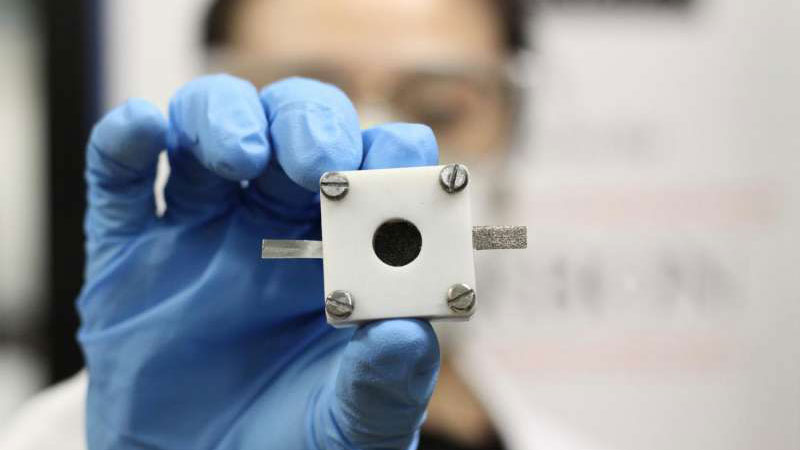Your phone could one day have a zinc-air battery thanks to new breakthrough
With potentially five times more capacity

Sign up for breaking news, reviews, opinion, top tech deals, and more.
You are now subscribed
Your newsletter sign-up was successful
Scientists working out of the University of Sydney and Nanyang Technological University have made a breakthrough with zinc-air batteries, potentially opening up the possibility of them replacing the now fairly ubiquitous lithium-ion batteries.
Zinc-air batteries feel like an obvious replacement for lithium-ion, given that they are cheaper to produce (thanks to the abundance of both zinc and air), safer, more environmentally friendly, and have the theoretical potential to store five times the energy.
Zinc-air batteries gain their charge from the oxidization of zinc when exposed to air. These batteries are already fairly common in devices like hearing aids and some film cameras, but don’t feature in portable devices like our smartphones, laptops and tablets.
The main reason that they aren’t the prominent batteries of use is a simple one – they don’t recharge well. But all this could be set to change thanks to the the three-stage method published in Advanced Materials by the team.
Cheaper and more effective
Professor Yuan Chen, lead author of the paper, claims that the new method can be used to create oxygen electrocatalysts that will allow for cheaper and more effective building of rechargeable zinc-air batteries:
“Up until now, rechargeable zinc-air batteries have been made with expensive precious metal catalysts, such as platinum and iridium oxide. In contrast, our method produces a family of new high-performance and low-cost catalysts.”
These catalysts are created through controlling the composition, size, and crystallinity of metal oxides of plentiful elements such as nickel, cobalt, and iron.
Sign up for breaking news, reviews, opinion, top tech deals, and more.
These catalysts perform well too. In tests, the batteries demonstrated less than 10% battery efficacy drop over 60 discharging/charging cycles of 120 hours. That's great for a test, and definitely a breakthrough for zinc-air recharging but is still a long way off levels needed to replace li-ion.
As we’re just at the stage that scientific papers are being published, we’re quite a way from seeing this technology make our smartphone batteries five times more powerful.
If the results do mean that you can achieve the same sort of recharging as li-ion, we'd be surprised if companies don't at least invest some time and money into seeing if zinc-air could prove to be cheaper and more effective.
- Want to know about the new Sony Xperia's specs? Check out: New Xperia XZ1 images show off Sony's next phone and its specs
Via Tech Xplore

Andrew London is a writer at Velocity Partners. Prior to Velocity Partners, he was a staff writer at Future plc.